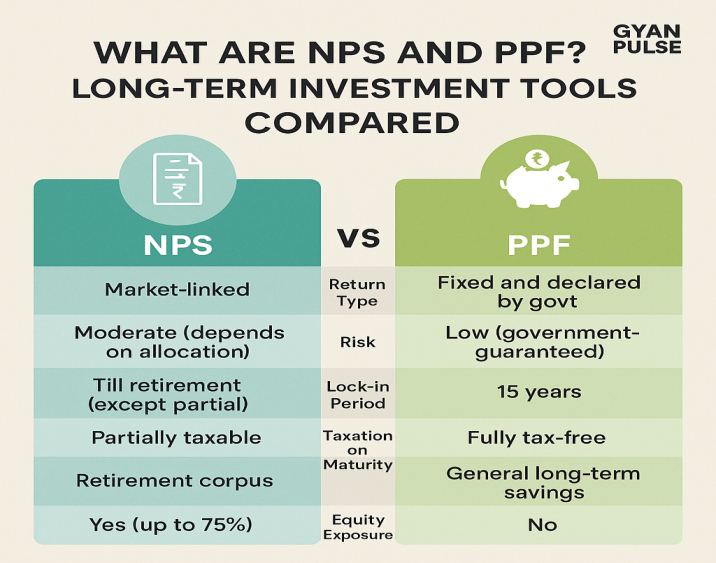Saving vs Investing – Key differences and When to choose Saving and Investing
Saving vs Investing explained simply. Learn the key differences, risks, returns, and how to balance saving and investing for financial security and long-term wealth in India.
Saving vs Investing
When it comes to managing money wisely, many people confuse saving with investing. While both are essential for financial health, they serve different purposes and have different risk levels, returns, and timeframes. In this post, we’ll break down the difference between saving and investing, explain when to choose which, and help you plan a smart financial strategy.
Table of Contents
What is Saving?
Saving means keeping some money safely aside to use for short-term goals or unexpected expenses. This money is usually stored in a safe and accessible place like:
- Savings accounts
- Fixed deposits (FDs)
- Recurring deposits (RDs)
Saving is low-risk and focuses on capital preservation-you don’t want to lose the money you’ve put away. However, the returns are usually low, often just enough to beat inflation.
What is Investing?
Investing means putting your money into assets that have the potential to grow over time, such as:
- Stocks and mutual funds
- Bonds
- Real estate
- ETFs or SIPs
Investing involves higher risk compared to saving, but it also offers higher potential returns. It’s best suited for long-term financial goals like retirement, buying a house, or wealth creation.
Key Differences: Saving vs Investing
| Feature | Saving | Investing |
|---|---|---|
| Purpose | Short-term needs, emergencies | Long-term wealth creation |
| Risk Level | Very Low | Medium to High |
| Returns | Low (2–6%) | High (8–15% or more) |
| Liquidity | High (easy to access) | Lower (may take time to sell assets) |
| Time Horizon | Short-term (0–3 years) | Long-term (5+ years) |
| Tools Used | Bank savings, FDs, RDs | Stocks, Mutual Funds, Real Estate |
When Should you Save?
You should focus on saving when:
- You are building an emergency fund (3-6 months of expenses)
- You have short-term goals (like buying a phone or going on a trip)
- You need immediate access to your money
- You are risk-averse or just starting your financial journey
Example: Keep your emergency fund in a high-interest savings account or FD for quick access and safety.
When Should you Invest?
You should focus on investing when:
- You want to grow wealth over time
- You’re saving for long-term goals like retirement, higher education, or a house
- You understand and can tolerate some risk
- You have an emergency fund already in place
Example: Start a SIP in a mutual fund to invest small amounts regularly and benefit from compounding.
Also Read: What is personal Finance? A complete beginner’s guide to money management in India 2025
Saving vs Investing: Which is Better?
It’s not about which is better, but about balance.
- Save first, so you have safety and peace of mind.
- Invest next, to make your money work for you in the long run.
A wise person builds both a strong savings base and an investment portfolio to cover all financial goals, short and long term.
Why Balancing Saving and Investing Matters
In today’s evolving financial landscape, especially in India, understanding the balance between saving and investing is crucial for long-term stability. Saving provides immediate security and liquidity for emergencies and short-term needs, while investing helps beat inflation and build wealth over time. Relying on only one can limit financial growth, but combining both ensures safety today and financial freedom tomorrow.
Building a Balanced Financial Plan
A smart financial plan combines the best of both worlds, saving for stability and investing for growth. Start by creating an emergency fund that covers at least six months of expenses, then gradually invest in assets like mutual funds, SIPs, or stocks. This balance ensures that you’re financially prepared for short-term needs while your wealth grows steadily over time. Remember, saving protects your present, but investing secures your future.
Summary
In summary, both saving and investing are important tools for your financial success.
- Save for security and emergencies.
- Invest for wealth and future goals.
By understanding the differences between saving and investing, you can make smarter money decisions and build a financially strong future.
Also Check: Finance
![]()




